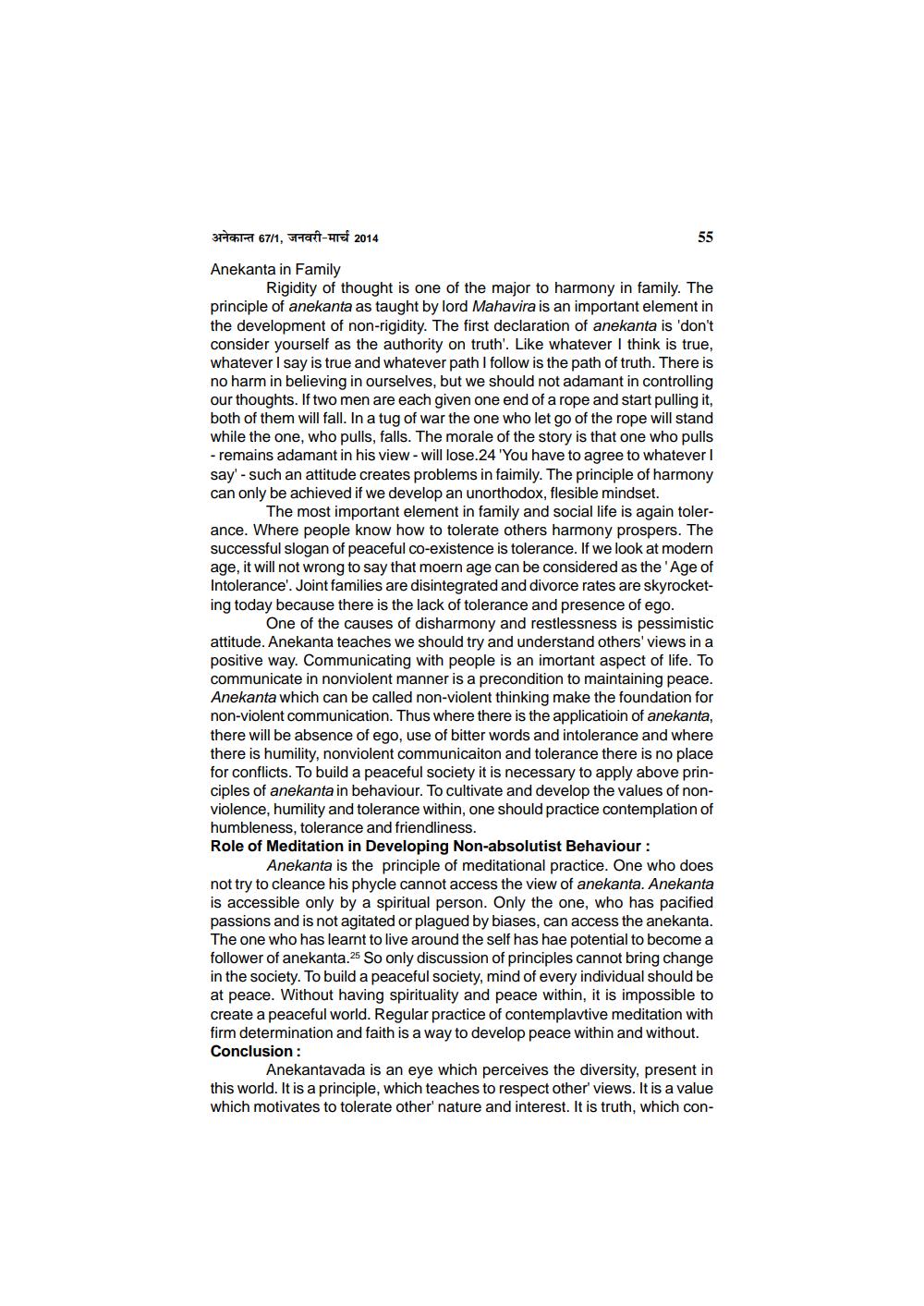________________
अनेकान्त 67/1, जनवरी-मार्च 2014
Anekanta in Family
Rigidity of thought is one of the major to harmony in family. The principle of anekanta as taught by lord Mahavira is an important element in the development of non-rigidity. The first declaration of anekanta is 'don't consider yourself as the authority on truth'. Like whatever I think is true, whatever I say is true and whatever path I follow is the path of truth. There is no harm in believing in ourselves, but we should not adamant in controlling our thoughts. If two men are each given one end of a rope and start pulling it, both of them will fall. In a tug of war the one who let go of the rope will stand while the one, who pulls, falls. The morale of the story is that one who pulls - remains adamant in his view - will lose.24 'You have to agree to whatever I say' - such an attitude creates problems in faimily. The principle of harmony can only be achieved if we develop an unorthodox, flesible mindset.
The most important element in family and social life is again tolerance. Where people know how to tolerate others harmony prospers. The successful slogan of peaceful co-existence is tolerance. If we look at modern age, it will not wrong to say that moern age can be considered as the 'Age of Intolerance'. Joint families are disintegrated and divorce rates are skyrocketing today because there is the lack of tolerance and presence of ego.
One of the causes of disharmony and restlessness is pessimistic attitude. Anekanta teaches we should try and understand others' views in a positive way. Communicating with people is an imortant aspect of life. To communicate in nonviolent manner is a precondition to maintaining peace. Anekanta which can be called non-violent thinking make the foundation for non-violent communication. Thus where there is the applicatioin of anekanta, there will be absence of ego, use of bitter words and intolerance and where there is humility, nonviolent communicaiton and tolerance there is no place for conflicts. To build a peaceful society it is necessary to apply above principles of anekanta in behaviour. To cultivate and develop the values of nonviolence, humility and tolerance within, one should practice contemplation of humbleness, tolerance and friendliness.
55
Role of Meditation in Developing Non-absolutist Behaviour:
Anekanta is the principle of meditational practice. One who does not try to cleance his phycle cannot access the view of anekanta. Anekanta is accessible only by a spiritual person. Only the one, who has pacified passions and is not agitated or plagued by biases, can access the anekanta. The one who has learnt to live around the self has hae potential to become a follower of anekanta.25 So only discussion of principles cannot bring change in the society. To build a peaceful society, mind of every individual should be at peace. Without having spirituality and peace within, it is impossible to create a peaceful world. Regular practice of contemplavtive meditation with firm determination and faith is a way to develop peace within and without. Conclusion:
Anekantavada is an eye which perceives the diversity, present in this world. It is a principle, which teaches to respect other' views. It is a value which motivates to tolerate other' nature and interest. It is truth, which con




